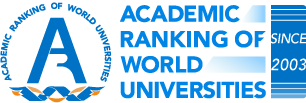Methodology for ShanghaiRanking's Global Ranking of Sport Science Schools and Departments 2016
- Selection of Universities
- Ranking Criteria and Weights
- Indicators and Weights
- Definition of Indicators
Selection of Universities
We consider candidate universities based on two criteria. First, the candidate should either be a sport university or have sport-related units. Second, the institution should be actively engaging in research in the past five years. In total, 361 universities or about 400 sport-related units are selected and ranked, and the best 300 universities are published on the website.
Ranking Criteria and Weights
Universities are ranked by several indicators of academic or research performance, including papers indexed in Web of Science, total citations, citations per paper, papers published in top 25% journals, and percentage of internationally collaborated papers of an institution. For each indicator, the highest scoring institution is assigned a score of 100, and other institutions are calculated as a percentage of the top score. Scores for each indicator are weighted as shown below to arrive at a final overall score for an institution. The highest scoring institution is assigned a score of 100, and other institutions are calculated as a percentage of the top score. An institution's rank reflects the number of institutions that sit above it.
Indicators and Weights
| Criteria | Indicator | Code | Weight |
|---|---|---|---|
| Research Output | Papers indexed in Web of Science | PUB | 20% |
| Research Quality | The number of citations to papers published by an institution | CIT | 20% |
Citations per paper | CPP | 20% | |
Papers published in top 25% journals | TOP | 20% | |
| International Collaboration | Percentage of an institution’s publications with international co-authorship | IC | 20% |
| Total | 100% |
Definition of Indicators
| Indicators | Definition |
|---|---|
| PUB | PUB refers to the total number of papers indexed in Web of Science between 2011 and 2015. Both publications of 'Article' and ‘Review’ ’type are considered. |
| CIT | CIT refers to the total number of citations received between 2011 and 2015 to papers published by an institution between 2011 and 2015. |
| CPP | CPP is citations per paper and measures the average number of times a paper is cited for. |
| TOP | TOP is the number of papers published in top 25% journals between 2011 and 2015. The top 25% journals are those with an impact factor in the top 25% according to Journal Citation Report, 2013. |
| IC | IC refers to the percentage of internationally collaborated papers to all papers. |

